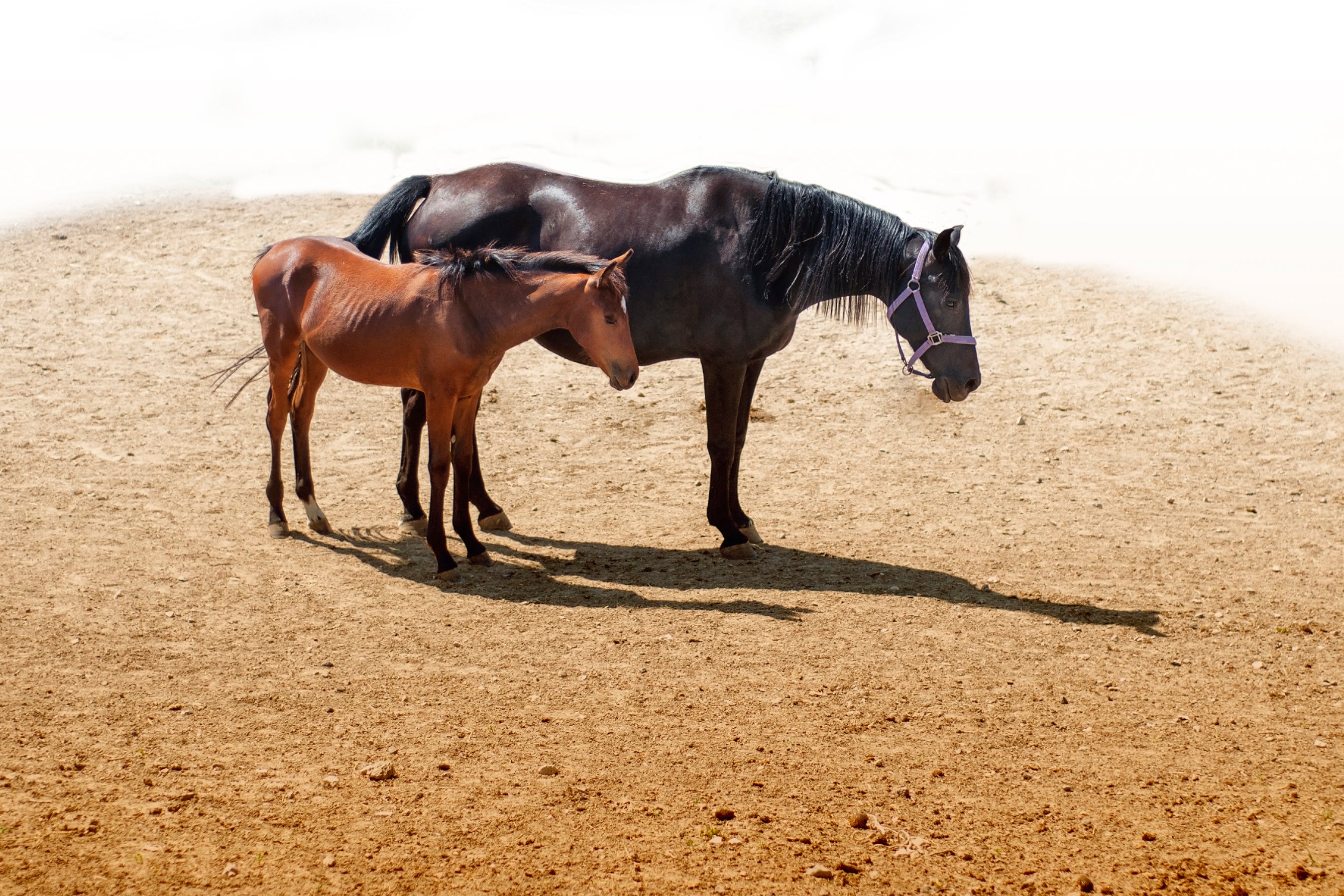[ad_1]

If you’ve at any time handed by a discipline of horses at evening, you’ve possibly observed that they rarely lie down to snooze. So why do these mammals snooze standing up?
The respond to is one particular of survival: Horses slumber when standing to balance their want for slumber versus the at any time-looming danger of predators.
Horses occur from a long line of prey animals in the family Equidae, and sleeping on their hooves is an adaptation towards predation. “Standing gives them a literal leap on predators and a superior prospect of acquiring away than if they have been [lying] down,” Karen Waite, an equine expert at Michigan Point out University, advised Reside Science in an email.
Only put, horses are major animals, and it normally takes time and power for them to get off the ground. A standing horse is therefore much improved in a position to run absent when roused from slumber. According to BBC Science Emphasis, the same goes for other significant prey herbivores, these kinds of as zebras, bison, elephants and giraffes, all of which are able of sleeping on their toes.
Horses have specialized anatomical features that empower them to continue to be on their hooves though catching some z’s. These attributes, acknowledged as a “stay apparatus” involve a sequence of tendons and ligaments — smooth tissues that link muscle to bone, and bone to bone, respectively — that operate all over both the forelegs and hind legs, in accordance to Waite. When a horse relaxes its leg muscle tissue, the continue to be apparatus ligaments and tendons act as pressure bands that stabilize the shoulder, knee and ankle joints in the legs. This permits the horse to continue to be standing devoid of owning to maintain substantially stress in their muscular tissues.
But when horses do most of their sleeping although standing, they do have to have to lie down for extra restorative sleep. “Horses will expend most of their time sleeping standing up, but they never essentially get to total REM sleep when they are standing,” Sarah Matlock, a senior instructor of equine actions at Colorado Condition University, explained to Live Science. For the duration of quick eye motion (REM) snooze in human beings — when a sleeping individual’s eyes shift swiftly underneath shut eyelids — dreaming can take place, and so muscles turn into briefly paralyzed so we do not act out our dreams. All through REM sleep,the mind also consolidates and procedures new facts for prolonged-phrase recollections. People today who really don’t get enough REM snooze may working experience complications with psychological focus and mood regulation, a weakened immune program and less cell development.
Grownup horses are typically equipped to get by on as very little as 5 several hours of snooze per working day, and they can get most of it when standing up. And although standing horses can realize “slow-wave,” or deep, dreamless snooze, but an adequately rested horse necessitates at least 25 minutes of REM sleep per working day, which can only materialize though lying down, Matlock explained.
Since of this, horses ought to lie down every single day. If they don’t, they could knowledge snooze deprivation, which can be a significant health and fitness chance for a horse. For occasion, putting it at threat of injuries from falling, according to the American Association of Equine Practitioners. “Horses that will not get ample REM snooze can be misdiagnosed with narcolepsy,” Matlock claimed. “Like, they might drop in excess of when you might be driving them.”
Mainly because standing even though sleeping is an adaptation to keep away from predators, horses need to experience comfortable and harmless just before they are inclined to lie down and slumber, Matlock mentioned. In feral horse populations, if many horses lie down to get REM slumber at the exact time, there will usually be at least 1 horse that remains standing, possible to observe for prospective predators.
“If they will not really feel protected in their ecosystem, or they will not have other horses with them, or if they’re isolated, then they are considerably less likely to come to feel risk-free plenty of to lay down to slumber,” Matlock explained.
Copyright 2023 LiveScience, a Potential corporation. All rights reserved. This product could not be printed, broadcast, rewritten or redistributed.
[ad_2]
Supply hyperlink






